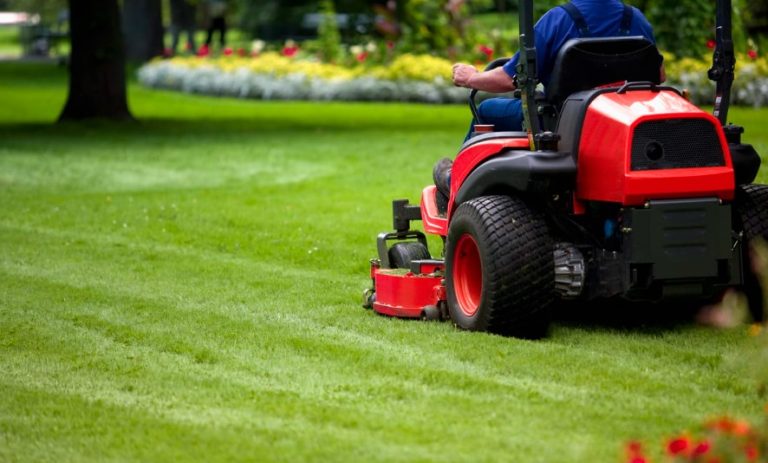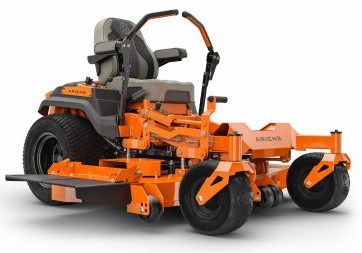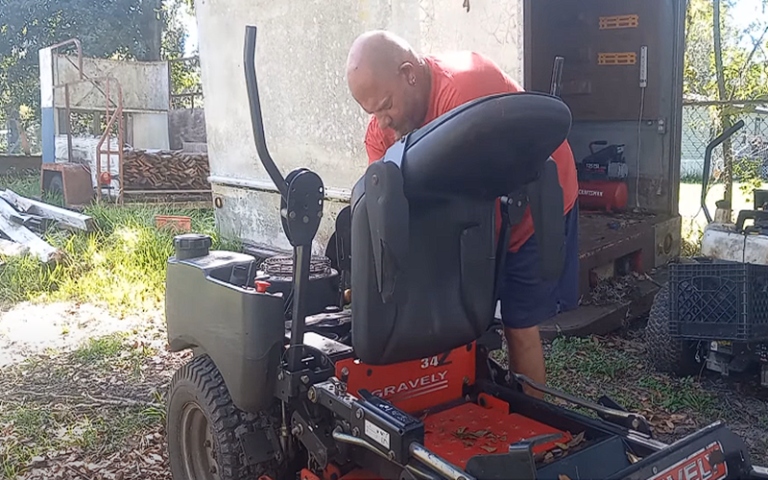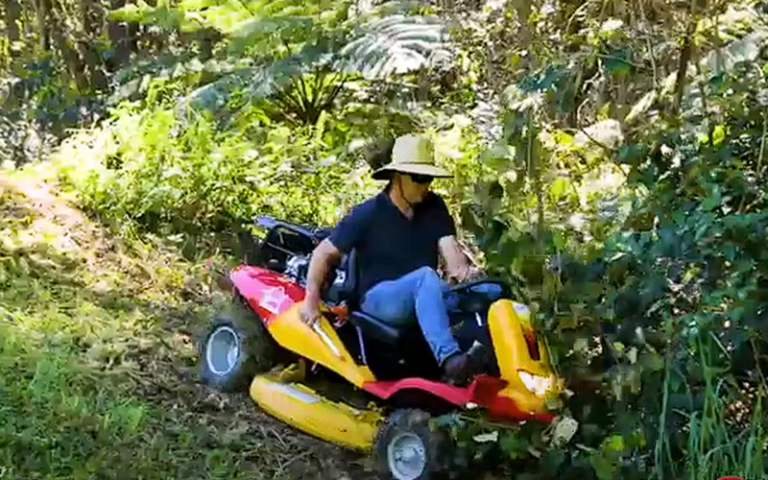How Much Does A Zero-Turn Mower Weigh? A Comprehensive Guide
Zero-turn mowers have become increasingly popular among homeowners and professional landscapers due to their superior maneuverability, speed, and efficiency in cutting grass. If you’re considering purchasing one, you might be wondering, “How much does a zero-turn mower weigh?” This is a crucial question, especially if you need to transport the mower, store it, or ensure that your terrain can support its weight. In this article, we’ll delve into the factors that influence the weight of a zero-turn mower, typical weight ranges, and why understanding this aspect is essential for making an informed purchase.
What Is A Zero-Turn Mower?

Before we dive into the specifics of weight, let’s briefly discuss what a zero-turn mower is. A zero-turn mower is a type of riding lawn mower that has a turning radius of zero. This means the mower can pivot on the spot, making it incredibly agile and ideal for navigating around obstacles like trees, flower beds, and other landscaping features. The design of these mowers typically includes two separate steering levers, which control the wheels independently, allowing for precise control over movement.
Factors Influencing the Weight of a Zero-Turn Mower
Several factors can influence the weight of a zero-turn mower, including its size, the materials used in construction, the engine type, and additional features or attachments. Let’s break these down:
1. Size and Deck Width
The size of the mower, particularly the width of the cutting deck, plays a significant role in its overall weight. Mowers with larger decks typically weigh more because they require more construction material and often come with more powerful engines to handle the increased load.
- Residential Mowers: These usually have deck widths ranging from 30 to 54 inches. They are designed for smaller properties and lighter use, so they generally weigh less, typically between 400 to 700 pounds.
- Commercial Mowers: With deck widths ranging from 54 to 72 inches or more, these mowers are built for heavy-duty use, often on large properties or commercial spaces. They can weigh between 700 to 2,000 pounds or more, depending on the model and additional features.
2. Materials Used

The materials used in the construction of the mower also affect its weight.
- Frame Construction: Mowers with steel frames tend to be heavier than those made with aluminum or composite materials. Steel is more durable and offers better resistance to wear and tear, making it the material of choice for commercial-grade mowers.
- Deck Material: Similarly, the cutting deck’s material influences the weight. Fabricated steel decks are heavier and more durable compared to stamped steel or plastic decks, which are lighter but less durable.
3. Engine Type and Size
The engine is one of the heaviest components of a zero-turn mower. Larger, more powerful engines naturally weigh more.
- Residential Engines: These engines typically range from 12 to 25 horsepower (HP) and are designed to be lighter for ease of use and fuel efficiency.
- Commercial Engines: These are more powerful, ranging from 25 to 38 HP or more, and are built to handle continuous operation over large areas, contributing to the overall weight of the mower.
4. Additional Features and Attachments

Additional features and attachments can add to the weight of the mower.
- Rollover Protection System (ROPS): Some commercial mowers come with an ROPS for safety, which adds weight.
- Fuel Capacity: Larger mowers often have bigger fuel tanks, and since gasoline weighs around 6.3 pounds per gallon, a full tank can significantly increase the mower’s weight.
- Other Attachments: Bagging systems, mulching kits, and other attachments can also add to the weight.
Typical Weight Ranges for Zero-Turn Mowers
Understanding the typical weight ranges for zero-turn mowers can help you choose the right model for your needs. Here’s a breakdown based on different categories:
1. Entry-Level Residential Zero-Turn Mowers
These are designed for homeowners with smaller lawns. They are lightweight and easy to maneuver.
- Weight Range: 400 to 600 pounds
- Examples: Models like the Troy-Bilt Mustang and Cub Cadet RZT are in this category.
2. Mid-Range Residential Zero-Turn Mowers
These mowers are suitable for larger residential properties and offer a balance between power and weight.
- Weight Range: 600 to 800 pounds
- Examples: John Deere Z500 Series, Husqvarna Z200 Series
3. Commercial Zero-Turn Mowers
Built for durability and extensive use, these mowers are heavier and more robust.
- Weight Range: 800 to 1,500 pounds
- Examples: Exmark Lazer Z, Scag Turf Tiger II
4. Heavy-duty commercial Zero-Turn Mowers
These are top-of-the-line models used in professional landscaping and large-scale lawn care operations. They are the heaviest in this category.
- Weight Range: 1,500 to 2,000 pounds or more
- Examples: Ferris IS 6200, Gravely Pro-Turn 600
Why Does the Weight of a Zero-Turn Mower Matter?
Understanding the weight of a zero-turn mower is crucial for several reasons:
1. Transportation
If you need to transport your mower, whether for maintenance or between job sites, its weight will determine the type of trailer or vehicle you need. Overloading a vehicle can lead to safety hazards and potential damage to the vehicle or mower.
2. Storage Considerations
The weight of the mower also affects storage options. Heavier mowers may require reinforced flooring in storage sheds or garages, and moving them in and out of storage can be more challenging.
3. Terrain Suitability
The weight of the mower can impact its performance on different terrains. Heavier mowers might struggle on soft, uneven, or wet ground, where they can sink or get stuck. On the other hand, heavier mowers offer better stability on slopes and rough terrain.
4. Fuel Efficiency and Operating Costs
Heavier mowers often consume more fuel, leading to higher operating costs over time. If you’re concerned about fuel efficiency, opting for a lighter model might be beneficial, especially for smaller properties.
5. Ease of Use
For residential users, a lighter mower might be easier to handle, especially if you’re not experienced with operating heavy machinery. Commercial users, however, might prioritize durability and performance over ease of use, making the extra weight a worthwhile trade-off.
How to Determine the Right Weight for Your Needs
Choosing the right zero-turn mower involves balancing the weight with your specific needs. Here are some tips to help you decide:
- Assess Your Lawn Size: Larger lawns typically require mowers with wider decks and more powerful engines, which will be heavier. For smaller properties, a lighter, more compact mower is usually sufficient.
- Consider the Terrain: If your lawn has steep slopes or uneven terrain, a heavier mower might provide better traction and stability. For flat lawns, a lighter mower can be easier to maneuver.
- Think About Storage and Transportation: If you need to store your mower in a small space or transport it frequently, consider the logistics of moving a heavier machine. Ensure your vehicle or trailer can handle the weight.
- Evaluate Your Budget: Heavier, commercial-grade mowers tend to be more expensive, both in terms of the initial purchase and ongoing maintenance. Consider whether the additional cost is justified by your needs.
- The 8 Best Zero Turn Mowers for Hills: This is a detailed article about some of the best models available today that you can refer to before choosing a product that suits your budget and needs.
Conclusion
The weight of a zero-turn mower is a critical factor that can influence everything from performance to ease of use. By understanding the factors that contribute to a mower’s weight and considering your specific needs, you can make an informed decision that will serve you well for years to come. Whether you’re a homeowner with a small yard or a professional landscaper managing large properties, there’s a zero-turn mower that’s just right for you.

Michael Anderson is a lawn care professional with many years of experience in the industry. His journey began in his family’s landscaping business, where he developed a passion for gardening and outdoor maintenance. Michael specializes in helping homeowners tackle challenging terrain, focusing on the best equipment and techniques for effective lawn care.
In 2024, he founded bestzeroturnmowerforhills.com to share his knowledge and help others find the ideal zero turn mower for hilly landscapes. His commitment to providing unbiased reviews and practical advice has made him a trusted resource for gardening enthusiasts.






